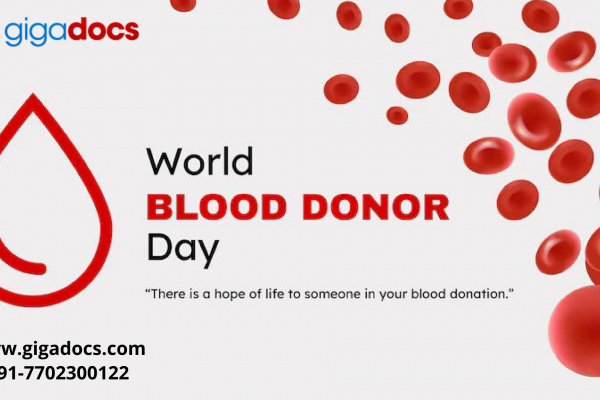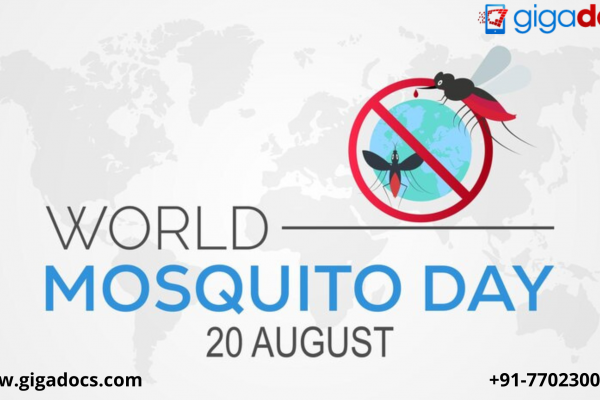Every year on January 12, National Youth Day is observed to honor the principles and teachings of Swami Vivekananda. Vivekananda was outspoken on the value of youth empowerment and education as key components of developing a nation. Millions of people, particularly young people, are impacted by the significant yet sometimes ignored mental health issue. Due to demands for their schooling, careers, and families, mental health problems have recently become more prevalent among Generation Z. On this National Youth Day, let’s learn about youth’s health problems and raise awareness of how to handle them.
Common health issues impacting youth-
Improving youth health through nutrition:
Many of the health challenges faced by youths today can be mitigated with the right diet consisting of the necessary nutrients. Eating habits and preferences developed during adolescence and young adulthood can have a big and long-term impact on the health and fitness for individuals.
Diet changes and Sedentary Behaviors:
The significant rise in obesity rates has been attributed to dietary changes. Economic development has caused a shift from traditional, healthier diets to an overreliance on quick-and-
easy meals rich in calories, sodium, sugar, and fats. Such diets raise the danger of obesity, even in young people. Furthermore, research has shown that young people favor nutrient-poor junk food. As a result, malnutrition from inadequate vitamin and mineral intake has also emerged as a problem, adding to the double burden of obesity and being overweight.
Limited physical activity:
In addition, to consuming foods high in fat, inactivity or limited physical activity is a leading contributor adding to the escalating health issue. Sedentary lifestyles has added to changes in leisure.
Which Nutrients are essential for Youngsters?
- Fruits and Vegetables- Half of your plate should consist of fruits and vegetables. Dark green, red, or orange vegetables are rich in essential nutrients like vitamin C, calcium, and fiber. To include additional vegetables in your lunch, top your lunch/ dinner with tomatoes, spinach, or any other available greens as a salad.
- Dairy- Use milk products that are fat-free or low-fat to strengthen your bones. Choose lactose-free milk with additional calcium if you have trouble digesting lactose, a substance found in milk that can give you bloating or gas. Yogurt low in fat or fat-free is also a good source of dairy products.
- Carbohydrates- Complex carbohydrates contain more fiber, vitamins, and minerals than simple carbs and have a lower glycemic index. Our body needs carbohydrates as a source of energy, and the fiber in complex carbohydrates can support healthy blood cholesterol levels and digestive function. You can choose more complex carbs for your children by consuming whole grains instead of refined grains, which are high in fiber.
- Fats- Your diet should contain fat in moderation. Your body needs fat to expand and grow, which may keep your skin and hair healthy. However, compared to protein or carbohydrates, fats have more calories per gram, and some are unhealthy. Some fats are healthier for you than others, such as plant-based oils that are liquid at room temperature. Nuts, seeds, and shellfish are examples of foods that contain beneficial oils.
- Protein- Protein is necessary for several vital body processes, such as immunity, cell regeneration, wound healing, and muscle preservation. The standard recommended is roughly 52 grams of protein for adolescent boys and 46 grams for teenage girls. The protein needed varies depending on characteristics like height, weight, gender, and age. Youths can easily replace specific meals in each meal with extra low-fat milk, eggs, lean meat, poultry, and fish to increase the number of proteins in their diets.
- Limit added sugars- Fruits, for example, naturally have sweetness. Some beverages and other foods, such as ice cream and baked sweets, have added sugars to give them a sweeter flavor. These sugars increase calorie intake but do not provide vitamins or fiber. Try to limit the added sugars in your meals and beverages to less than 10% of your daily calories. Instead of a candy bar, reach for an apple or a banana.
- Sodium- A limited amount of sodium, primarily included in salt, is required by your body. However, consuming too much sodium in your food can cause your blood pressure to increase, which is bad for your heart. To avoid health issues as you age, it’s crucial to monitor your blood pressure and heart health today, even though you’re still a teen.
How can Gigadocs help the youth?
Youth face countless stress triggers as the world changes. The piomariry factor affecting the youth remains employment, Gigadocs gives an opportunity to the youth of our nation to equip themselves with self-employment opportunities. Download the Gigadocs app to know better-
Download the App from-
● IOS App – apple.co/2W2iG4V
● Android App – bit.ly/33AQoRC
To know more e-mail, at info@gigadocs.com




